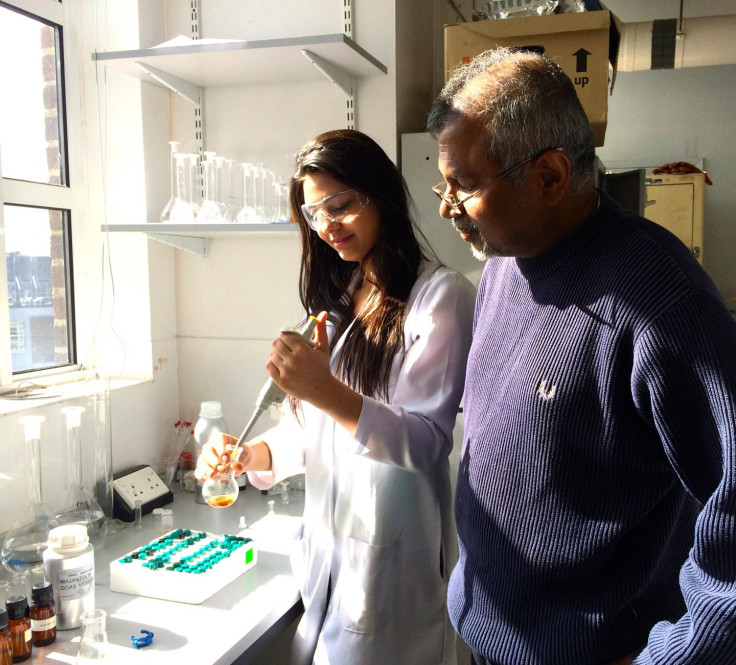Body odour solution: Scientists develop perfume that smells better the more you sweat

Two studies have presented their findings to deal effectively with the irksome issue of sweat odour. One uses a technique to increase fragrance with sweat, while another goes to the root of the issue - bacteria.
The new perfume delivery system the scientists at Queen's University Belfast have developed uses a technique to increase the potency of a fragrance the more a person sweats.
The amount of aroma released is increased on contact with more moisture.
The technique uses solutions called ionic liquids. They do not have a smell themselves but take up the smell of any chemical tagged on.
However, the fragrance emerges only when water is added to the mix. The more the water the stronger the smell.
Researchers at the Queen's Ionic Liquid Laboratories (QUILL) Research Centre found that 'thiol' compounds (thiol alcohols) that make sweat smell bad are also attracted to the ionic liquid.
Project leader Dr Nimal Gunaratne, from the Queen's University Belfast Ionic Liquid Laboratories (QUILL) Research Centre, said: "This is an exciting breakthrough that uses newly discovered ionic liquid systems to release material in a controlled manner. Not only does it have great commercial potential, and could be used in perfumes and cosmetic creams, but it could also be used in others area of science, such as the slow release of certain substances of interest."
Genetic odour study
Another group from University of York and Unilever identified the genes encoding the proteins responsible for producing free thiol alcohols.
Sweat by itself is odourless and is rendered foul-smelling by resident bacteria in the armpit.
Millions of bacteria, of various species, reside here, but a few 'bad' species are responsible for the odour.
These bacteria, like the Staphylococcus hominis, feast on the sugary proteins in sweat, releasing the pungent thiols.
The team identified the genes not just in Staphylococcus hominis, but also in two other Staphylococcus species that produce thioalcohols.
Currently deodorants and antiperspirants can either stop you from sweating temporarily, mask the smell or eliminate some of the odour by killing all the bacteria.
With the new work, a product that specifically targets thioalcohol production could be more effective.
According to a CNN report, genes play a role in the kind of bacteria the armpit hosts, with some people carrying more of the 'bad' bacteria.
© Copyright IBTimes 2024. All rights reserved.





